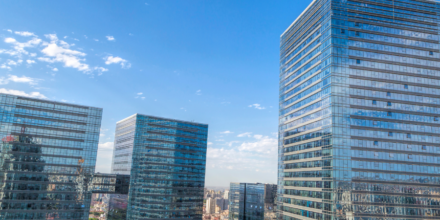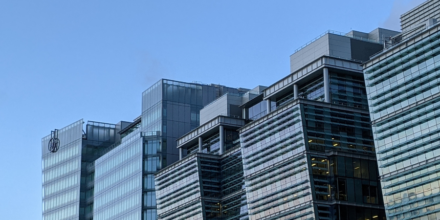Since the pandemic, the commercial property market has truly demonstrated its resilience – many sceptics proclaimed that the office was dead, and that retail units were experiencing a similar decline. How wrong they were! Instead, the commercial property sector has proven that it is more in demand than ever before, leading many commercial unit owners to consider selling their properties whilst the market is buoyant. So, how can you determine whether you should sell your commercial property, lease it, or hang on to it for a little longer? Here are the points you should consider before listing your commercial unit for sale!
Is there demand for your unit type?
Establishing whether there is demand for your unit type is imperative in determining whether to sell your commercial property – simply put, if demand isn’t out there, a sale may not be an easy feat. You can determine whether there is demand for your unit by considering the following:
- Are average sale prices of units akin to yours increasing, or decreasing? If the answer is ‘decreasing’, this likely means that demands for these units is going down, or there is an oversupply of similar units on the market
- Are there businesses moving into your area that may need your space?
- Are local commercial agents experiencing an influx of enquiries, or are they struggling to shift stock?
- Is there low supply of your unit type? If so, this could lead to high demand for your property as it could be a rarity on the commercial market
Have you considered leasing?
If demand for your property on the sales market is low, it may be worth waiting for a more optimal time to list your unit and renting it out in the meantime. There are many benefits to leasing your commercial unit as opposed to selling it:
- If you anticipate a long-winded sale, it may be worth leasing in the meantime to reduce the risk of any void periods. This way, if your sales process takes a while, at least you will still have some form of income from your commercial property
- If you already have a commercial tenant in situ, and are getting reliable rent, it may be worth maintaining this arrangement, or even proposing to your existing tenants that they purchase the unit from you directly, when you do come to sell this can make it more appealing to commercial property investors as they can purchase with a tenant
- You can react to changes in the market, increasing your rent with each tenancy in line with price growth
- Leasing your unit can be a reliable source of income, especially for SME’s that cannot afford the outright purchase of a unit: as such, your unit will be marketable to a broader range of businesses
- You could benefit from any redecoration that your tenants carry out during their commercial tenancy, which could potentially boost the value of your unit for the future
What is the state of the economy?
Assessing demand and weighing up your options regarding whether to lease or sell your commercial property is inextricably associated with the state of the economy. Businesses are directly impacted by broader economic downturns, with many choosing to hold off on a commercial property purchase if they suspect their business is set to hit a few bumps. What’s more, different businesses will react in different ways to changes in the economy: for example, office spaces may not be as greatly impacted as retail units if inflation is affecting consumerism and the availability of disposable income more than anything else. As such, it may be worth holding onto your unit and waiting until the market returns to a buoyant status before you list it, in order to achieve the best price. During this period, it may be worth leasing your unit and remaining in contact with your local commercial agency to determine when the time to sell is right for you.
Are you ready to sell your commercial property?
Although you can list a unit on the market in any condition, it may be more beneficial to undertake some light refurbishments before listing your unit for sale. From the perspective of the purchaser, this makes your unit ready to move operations into, and saves them funds, time and effort in the long-term, even potentially increasing the rent you can achieve. You should also collect the following documentation before you list your unit on the open market, in order to prepare for enquiries:
- Title deeds
- Personal ID
- Occupational leases or licenses
- Property management information
- Any mortgage details
- EPC
- Asbestos report
- Fire risk assessment
- Planning documents
- Capital allowance information
What about market predictions?
Understanding the future of the commercial market is imperative to pinpointing the best time to sell your commercial property. Thankfully for commercial property owners, the future of the sector looks exceptionally bright! Knight Frank predict that retail units will continue on their post-pandemic road to recovery, Savills believe that cross-European logistics spaces will remain popular, and the future of the commercial office space remains particularly positive. Overall, the market seems to be blossoming, with average prime yields increasing to 5.23% in September 2022 from 4.95% in August.
However, although commercial property seems to be experiencing an overall uptick, it is important for you to consider growth and regeneration in your local town or city – looking at growing job opportunities, investment and business movement will allow you to establish whether there will be sufficient appetite for your property if it comes to the market. Talking to your local council or your local commercial agency, will help you establish this.
Do you know a commercial agent you can trust?
Selling a commercial unit can be a challenging process, especially if you do not have a commercial agent on your side to help you source a qualified purchaser. That’s why Centrick offers free, no obligation advice to commercial property owners so that you can make the most informed decision about your unit – whether it’s selling or leasing! Get in touch with our friendly team of industry experts using the form below:









